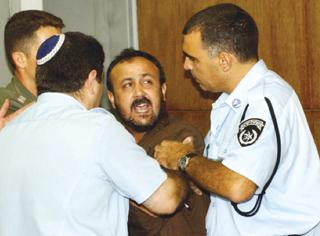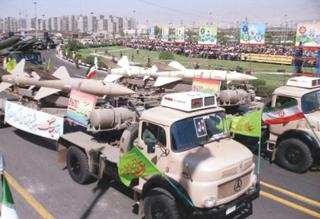During the course of the 20th century, and especially in the years since the 1967 Six Day War, there has been a dramatic change in the academic and popular historiography of the Middle East.
The traditional narratives have been supplanted by new and fundamentally different and revisionist ways of looking at the region and its conflicts.
A case in point: In 1977, PLO executive committee member Zahir Muhsein told the Dutch newspaper Trouw that “The Palestinian people does not exist. The creation of a Palestinian state is only a means for continuing our struggle against the state of Israel for our Arab unity.”
In reality, today there is no difference between Jordanians, Palestinians, Syrians and Lebanese. Only for political and tactical reasons do we speak today about the existence of a Palestinian people, since Arab national interests demand that we posit the existence of a distinct “Palestinian people” to oppose Zionism.
<!–
AdSys ad not found for news/world:instory –>
In actuality, during the period of time in which Judea/Palestine was under the yoke of Ottoman imperialism, the dominant national identification of the “Palestinian Arabs,” a group of scattered peasants (fellahin in Arabic), was that of members of the Arab people, and more specifically as residents of greater Syria.
Palestinian nationalism as such did not exist. There has never been an independent Palestinian state, nor has Jerusalem ever been the capital of an independent Arab polity.
These facts, while undeniably true, do not in any way form the basis for modern thought and diplomatic practice in regards to Israel and its long-running conflict with its Arab neighbors.
Though Arab governments in a spirit of Pan-Arabism founded the PLO, the acknowledged historical chronology relegates such inconvenient facts to the dustbin.
Instead, fiction assumes the realm of fact while charges of racism are leveled against anyone who denies the veracity of “Palestinian claims.”
Instead of the Palestinians being perceived as a group of immigrants from various Arab states that have only recently coalesced into a semi-unified community, they are acknowledged as a group deserving of equal rights to the historical Jewish homeland.
It is to combat these myths that Professor Steven Carol has published his new book, Middle East Rules of Thumb (iUniverse 2008). Professor Carol examines the underlying assumptions behind popular support for the “Palestinian” cause, and the policy ramifications of such ideas.
A good example of this would be his treatment of the Arab-Israeli conflict as the sole source of Middle East instability. It has been contended, by both the Arabs and the international community, that the underlying problem in the region is Israeli intransigence and that a negotiated peace with the “Palestinians” would lead to a better climate for economic growth and the spread of democratic values.
However, in the spirit of Josef Joffe (see “A World Without Israel,” Foreign Policy, 2005 http://tinyurl.com/atltvk ), Dr. Carol has compiled a list, chart, six pages in length, that lists the various religious, national and ethnic conflicts in the Arab/Muslim world that predate Israeli independence in their root causes, or, having begun since the inception of the Zionist enterprise, still have no connection to the settlement of Jews in their ancestral homeland. Dr. Carol does the general public a great service in providing historical, religious and political context to what one sees every day in the newspapers.
The book is written in a light and breezy style, making it easy to read. This is quite an accomplishment, given the subject matter.
As a companion to such books as Myths and Facts or From Time Immemorial, rather than a self-contained work in and of itself, Middle East Rules of Thumb proves itself to be a both a highly entertaining read and a good source of information.
Having taught at such schools as Adelphi University and Long Island University, written previous scholarly and popular works and consulted for radio, Dr. Carol certainly knows his subject material and is familiar with writing for a popular audience. Dr. Carol supplements the main body of his work with generous and well-written appendixes that are both entertaining and informative.
David Bedein can be reached at dbedein@israelbehindthenews.com








